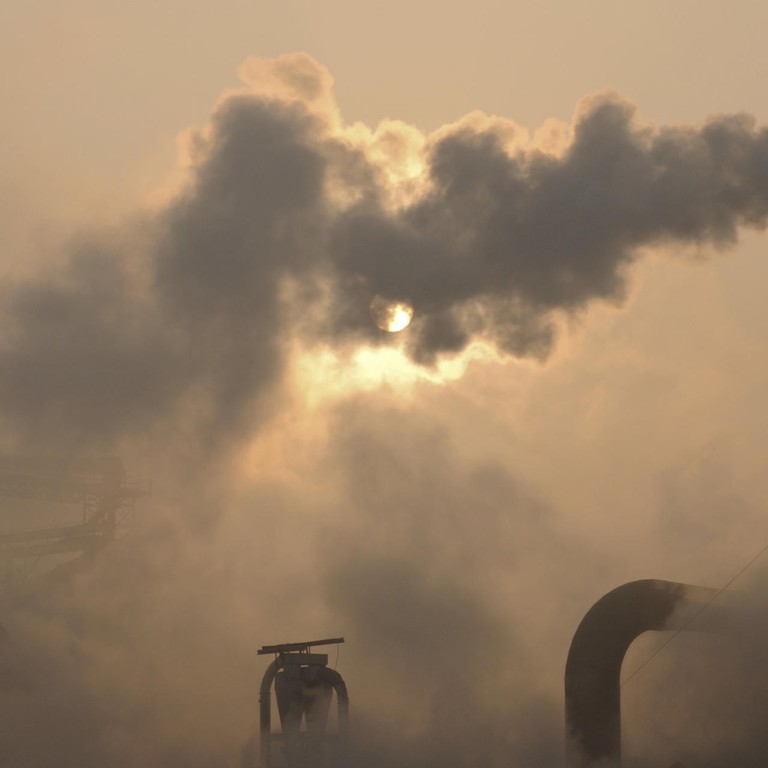
China treads cautiously in setting up carbon emissions trading
With pilot carbon emissions exchanges launched last year, the mainland is being urged to learn from the experiences of others, especially Europe
China launched five regional carbon emissions exchanges last year, and two more are expected soon, but it is years away from having a mature trading platform.

China has the advantage of being a latecomer in establishing a market to trade carbon dioxide emission rights, so it could avoid some of the pitfalls faced by the European Union when it launched the EU Emissions Trading System (ETS) in 2005.
"China, as a follower, is in a better position. It is experimenting with different methods for a few years before it will consider rolling out a scheme on a national basis," said Charles Yonts, CLSA's head of sustainable research.
The central government picked Shenzhen, Shanghai, Beijing, Guangdong province, Tianjin, Chongqing and Hubei province to be test beds for carbon trading. Exchanges were launched last year in the first five places, while Chongqing and Hubei are expected to set theirs up within the next two months.
Lessons drawn from these pilots will be reviewed in 2015, after which Beijing will decide on whether to set up a national exchange.
"Carbon trading is new to China, so to cut risks, pilots are carried out in select regions with relatively developed economies, sufficient manpower and environmental protection awareness," said David Tang Yue-tan, the secretary of the board of the Tianjin Climate Exchange.
He said it will take a few years to establish reliable verification of the emissions information submitted and to build a degree of liquidity for efficient price discovery.
"I don't think the pricing reflected so far by the few platforms matters too much. Rather, its significance lies in the fact that China is moving forward with carbon trading, after a few years of efforts to build up the capacity, expertise and required infrastructure," said Wu Changhua, greater China director at The Climate Group, a not-for-profit organisation that campaigns for action to mitigate climate change.
The exchanges launched so far have their own characteristics, with Shenzhen's being the first to allow individuals to trade on its exchange, while Beijing's has stipulated that deals between related parties and deals above certain sizes be conducted in the over-the-counter market.
Guangdong is expected to be the first to auction off emission permits. The other exchanges are either giving all quotas free of charge initially or charge polluters for a tiny portion of their quotas. This means polluters have yet to feel the heat of government pressure.
"While these markets have not yet had a material impact, due to generous quota allocations, they have the potential to become important mechanisms for regulating emissions and could create financial pressure on everything from coal plants to petroleum refineries, to steel mills," a Citi research report said.
A lack of flexibility for government intervention in the supplying of emission quotas amid the onset of a major economic crisis in the EU led to large surpluses of emission rights and a collapse in their prices over the past few years.
Most of the mainland's new exchanges have rules which allow local governments to influence the supply of emission permits.
For example, the Tianjin exchange stipulated that "at times of great price volatility", the municipal government can launch "market stabilisation" operations, such as the sale of new permits or repurchases of permits.

